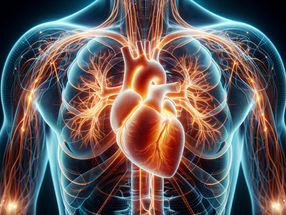10 things you didn't know about coffee
coffee, the pacemaker of the modern age. For many, it's the first and most important drink of the day, while others warn against the pick-me-up. But what do we actually know about our indispensable companion through the day, what does science say? Here are ten things you may not have known about the world's most popular drink after water and tea.

Symbol image
Computer generated picture
-
Origin of the name The origin of the word is not clear beyond doubt, both Turkish and Arabic are possible sources. The Turkish word "kahvè" is derived from its Arabic counterpart "qahwa", which means something like "stimulating, strong". What is clear, however, is that "Kaffa" is the name of a plateau in what is now Ethiopia, which still has a large coffee culture and also exports the bean in large quantities. Although variants of the word "coffee" exist in countless languages, in Ethiopia itself the brew is called "Buna." Across the Red Sea, in Yemen (where the port city of Mocha is located), coffee probably became very popular in the mid-15th century and from there quickly spread throughout the Muslim world.
Trendy drink in old Europe: What the sword could not do, the bean succeeded in doing: Only two years after the Ottomans had unsuccessfully besieged Vienna for a second time, the first coffee house opened in Vienna in 1685. Emperor Leopold I had given special permission for this to an Armenian businessman, and later the city's coffee houses were run by Greeks. A trend was set and coffee was soon on everyone's lips thanks to extensive trade with Venice and the Orient. Since 2011, Viennese coffeehouse culture has been part of the intangible world cultural heritage. In Istanbul itself, the first coffeehouse is attested to have been built around 1554.
90 percent of Germans reach for their coffee cup - usually on a regular basis: each person in this country drinks an average of just under four cups a day. Germans drink just under 160 liters of coffee a year.
Low in calories: a cup of black coffee has 4 kilocalories. Espresso clocks in at just two kilocalories, while a large glass of latte macchiato (350ml) with whole milk has around 200.
Health benefits: People who drink coffee daily for decades have a lower risk of a host of diseases, including type 2 diabetes, depression and dementia. Even the widespread image as a cardiovascular killer - long cold coffee. Overall, three to four cups are considered safe for healthy people in any case. In particular, the antioxidants contained in coffee, which fight free radicals, for example, have a beneficial effect. Instant coffee contains the most antioxidants, then filter coffee and then espresso.
Who should drink little coffee? Caffeine promotes the excretion of calcium and thus bone loss. Anyone suffering from osteoporosis should therefore drink no more than three cups of coffee a day, preferably with milk. This also applies to people who regularly take cortisone. For pregnant women, decaffeinated coffee is advisable, as too much caffeine can reduce the birth weight of the child. Caution should also be exercised by people who tend to have high blood lipid levels. Coffee increases the levels of cholesterol and homocysteine in the blood. Stomach sensitives who often suffer from heartburn should also be cautious with coffee.
Wake-up call: The caffeine in coffee makes us feel awake. During the day this is welcome, but not at night, which is why sleep researchers such as Dr. Eva-Maria Elmenhorst recommend not consuming any more coffee after 4 p.m. People who drink coffee late at night have less deep sleep. You should therefore avoid coffee at least six hours before bedtime.
Adenosine: And what exactly makes us awake? In the brain, caffeine binds to certain receptors, a kind of tiny antennae. A substance that makes us tired, adenosine, normally attaches to these receptors. Caffeine blocks the adenosine antennae and thus the sleepiness signal. So coffee doesn't wake you up by hitting the gas. "It only blocks the brake," says sleep researcher Dr. Eva-Maria Elmenhorst.
Occurrence: The coffee plant (botanically: Coffea grows and thrives along the so-called "coffee belt" that stretches around the equator. By far the best known of the 124 known coffee varieties are Robusta and Arabica. In 2021, 167 million bags (60 kg each) of coffee were harvested worldwide.
Economy: the world's third most popular beverage generates substantial global sales, with EUR483.40 billion expected in 2023. By comparison, Israel generated EUR483.63 billion in 2022, according to IMF data.
Note: This article has been translated using a computer system without human intervention. LUMITOS offers these automatic translations to present a wider range of current news. Since this article has been translated with automatic translation, it is possible that it contains errors in vocabulary, syntax or grammar. The original article in German can be found here.
Other news from the department business & finance
Most read news
More news from our other portals
© 1997-2025 LUMITOS AG, All rights reserved


























































